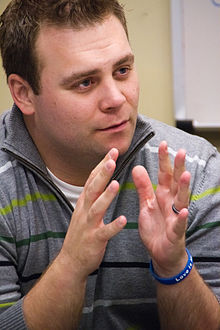|
presents THIS DAY IN GAY HISTORY based on: The White Crane Institute's 'Gay Wisdom', Gay Birthdays, Gay For Today, Famous GLBT, glbt-Gay Encylopedia, Today in Gay History, Wikipedia, and more …
Collected by Ted December 16 [{(o)}]|[{(o)}]|[{(o)}]|[{(o)}]| [{(o)}]|[{(o)}]
1863 – The Spanish-born philoopher, essayist, poet and novelist George Santayana was born on this date (d.1952). Born Jorge Agustín Nicolás Ruiz de Santayana y Borrás, Santayana was a lifelong Spanish citizen, was raised and educated in the U.S., wrote in English and is generally considered an American man of letters, even though, of his nearly 89 years, he spent only 39 in the U.S. He is perhaps best known as an aphorist, and for the oft-misquoted remark, "Those who cannot remember the past are condemned to repeat it," from Reason in Common Sense, the first volume of his The Life of Reason. Although late in fully understanding his sexual preference, he wrote a series of sonnets celebrating his love for a friend who died young and described his male friendships in rhapsodic terms in his autobiography. One finds Santayana's clearest homophile expression in the set of four elegiac sonnets for Warwick Potter, the young man Santayana called his "last real friend," who died of cholera following a boating accident in 1893. By his own account, Santayana did not really understand his own sexual preference until fairly late in life. During a 1929 conversation about A. E. Housman, a favorite poet, Santayana told his secretary Daniel Cory that Housman "was really what people nowadays call 'homosexual'; the sentiment of his poems is unmistakable." Santayana then added: "I think I must have been that way in my Harvard days, though I was unconscious of it at the time." It is frequently said that Santayana's The Last Puritan is the best novel ever written by a philosopher. It is also one of the saddest novels in literature for it relates the story of a painfully unrequited love that was Santayana's own. The Harvard philosopher spent almost his entire life in love with an unresponsive heterosexual who, at times, couldn't even remember his name. And it is this lifelong love — for Bertrand Russell's brother Frank — that is reflected in The Last Puritan.
1899 – The English actor, playwright, and composer Noël Coward was born on this date (d.1973). Among his achievements, he received an Academy Certificate of Merit at the 1943 Academy Awards for "outstanding production achievement for his film In Which We Serve." He was a valued friend of Laurence Olivier, Vivien Leigh, John Mills, Gene Tierney, Judy Garland, Elaine Stritch, Princess Margaret and Queen Elizabeth the Queen Mother. He was a close friend of Ivor Novello and Winston Churchill. Coward was Gay and never married, but he maintained close personal friendships with many women. These included actress and author Esmé Wynne-Tyson, his first collaborator and constant correspondent; the designer and lifelong friend Gladys Calthrop; secretary and close confidante Lorn Loraine; his muse, the gifted musical actress Gertrude Lawrence; actress Joyce Carey; compatriot of his middle period, the light comedy actress Judy Campbell; and (in the words of Cole Lesley) 'his loyal and lifelong amitié amoureuse', film star Marlene Dietrich. Coward refused to acknowledge his sexual orientation, wryly stating, "There is still a woman in Paddington Square who wants to marry me, and I don't want to disappoint her." Coward's insights into the class system can be traced back to London life in World War I, when thousands of troops passed through the capital every day, and officers and other ranks met civilians in dozens of highly secret clubs. He enjoyed a thirty-year relationship with the stage and film actor Graham Payn from the mid 40s until Coward's death. Payn later co-edited with Sheridan Morley the collection of his diaries, published in 1982. He was also connected to composer Ned Rorem, with details of their relationship published in Rorem's diaries. Claims that Coward had a 19-year relationship with Prince George, Duke of Kent, were strongly denied by Payn, who said that Coward always denied anything had happened between him and the Prince. He was a product of his times (and his own imagination, to be sure) and exquisitely attuned to those times. From his youth Coward had a distaste for penetrative sex and held the modern gay scene in disdain. This disdain, we have to believe is merely a symptom of an era, rather than a matter of character, and something he would have rethought had he been born in another time. His evident innate sense of honor and what is right would have, one has to infer, brought him around. He was the president of The Actors' Orphanage, an orphanage supported by the theatrical industry. In that capacity he befriended the young Peter Collinson, who was in the care of the orphanage, becoming Collinson's godfather and helping him get started in show business. Later when Collinson was a successful director he invited Coward to play a role in the film The Italian Job; Coward's lover Graham Payn also played a small role in the film. Here's just a bit of Coward's wit: Coward was a neighbour in Jamaica of James Bond's creator Ian Fleming and his wife Anne, the former Lady Rothermere. Coward was a witness at the Fleming's wedding and though he was very fond of both of them, the Flemings' marriage was not a happy one, and Noël eventually tired of their constant bickering, as recorded in his diaries. When the first film adaptation of a James Bond novel, Dr. No was being produced, Coward was approached for the role of the villain. He is said to have responded, "Doctor No? No. No. No." When speaking to Peter O'Toole about his performance in the movie Lawrence of Arabia, he said "If you'd been any prettier, it would have been 'Florence of Arabia'." When someone pointed out a rising young actor at a party with the words "Keir Dullea" Coward's instant reply was "Gone tomorrow." The Papers of Noël Coward are held in the University of Birmingham Special Collections.
1901 – Margaret Mead (d.1978) was an American cultural anthropologist, who was frequently a featured writer and speaker in the mass media throughout the 1960s and 1970s, most noted for he book Coming of Age in Samoa. She was both a popularizer of the insights of anthropology into modern American and Western culture, and also a respected, if controversial, academic anthropologist. Her reports about the attitudes towards sex in South Pacific and Southeast Asian traditional cultures amply informed the 1960s sexual revolution. Mead was a champion of broadened sexual morals within a context of traditional western religious life. Although she was married three times in her lifetime, Mead also had an exceptionally close relationship with Ruth Benedict, one of her instructors. In her memoir about her parents, With a Daughter's Eye, Mead's daughter, Mary Catherine Bateson implies that the relationship between Benedict and Mead was partly sexual. While Margaret Mead never openly identified herself as lesbian or bisexual, the details of her relationship with Benedict have led others to so identify her. In her writings she proposed that it is to be expected that an individual's sexual orientation may evolve throughout life. She spent her last years in a close personal and professional collaboration with anthropologist Rhoda Metraux, with whom she lived from 1955 until her death in 1978. Letters between the two published in 2006 with the permission of Mead's daughter clearly express a romantic relationship.
1913 – The Utah Supreme Court rules that fellatio does not violate the state's "crime against nature" law.
1917 – Arthur C. Clarke (d.2008) was a British science fiction author, inventor, and futurist, famous for his short stories and novels, among them 2001: A Space Odyssey (1968), and as a host and commentator in the British television series Mysterious World. For many years, Robert A. Heinlein, Isaac Asimov, and Clarke were known as the "Big Three" of science fiction. Clarke served in the Royal Air Force as a radar instructor and technician from 1941-1946. He proposed a satellite communication system in 1945 which won him the Franklin Institute Stuart Ballantine Gold Medal in 1963. He was the chairman of the British Interplanetary Society from 1947-1950 and again in 1953. Clarke emigrated to Sri Lanka in 1956 largely to pursue his interest in scuba diving; that year, he discovered the underwater ruins of the ancient Koneswaram temple in Trincomalee. He lived in Sri Lanka until his death. He was knighted by Queen Elizabeth II in 1998, and was awarded Sri Lanka's highest civil honour, Sri Lankabhimanya, in 2005. On a trip to Florida in 1953 Clarke met and quickly married Marilyn Mayfield, a 22-year-old American divorcee with a young son. They separated permanently after six months. "The marriage was incompatible from the beginning", says Clarke. Clarke never remarried but was close to a Sri Lankan man, Leslie Ekanayake, whom the author called his "only perfect friend of a lifetime" in his dedication to The Fountains of Paradise. Clarke is buried with Ekanayake, who predeceased him by three decades, in the Colombo central cemetery. In his biography of Stanley Kubrick, John Baxter cites Clarke's homosexuality as a reason why he relocated, due to more tolerant laws with regard to homosexuality in Sri Lanka. Journalists who enquired of Clarke whether he was gay were told, "No, merely mildly cheerful." However, Michael Moorcock has written:
Everyone knew he was gay. In the 1950s I'd go out drinking with his boyfriend. We met his proteges, western and eastern, and their families, people who had only the most generous praise for his kindness. Self-absorbed he might be, and a teetotaller, but an impeccable gent through and through.
Moorcock's assertion is not supported by other reports, although in an interview in the July 1986 issue of Playboy magazine, Clarke stated "Of course. Who hasn't?" when asked if he had had bisexual experience. Clarke maintained a vast collection of manuscripts and personal memoirs, maintained by his brother Fred Clarke in Taunton, Somerset, England, and referred to as the "Clarkives." Clarke said that some of his private diaries will not be published until 30 years after his death. When asked why they were sealed up, he answered 'Well, there might be all sorts of embarrassing things in them".
1921 – The New York Times printed a story about Ethel Kimball, who passed as a man named John Hathaway for several years. She married a woman, and after being discovered was arrested for providing false information when applying for a marriage license. While in jail she was offered female clothing but refused to wear it.
1923 – Gerald Glaskin (d.2000) was a Western Australian author. Although he won the Commonwealth Prize for Literature in 1955, his works were received more favourably in Europe than in Australia where he had virtually no public profile, and he lived mostly in Asia and later the Netherlands, until returning to Perth in 1968. Glaskin's extensive time overseas may have been because of the oppressive Australian moral climate of the period against homosexuality. In 1961 he had been charged with indecent exposure (presumably while sexually cruising) on a Perth beach. His published works were extensive. He wrote poetry, short stories, and novels. Some works also included issues of science fiction and new-age spiritual guidance related to the interpretation of dreams. He was also involved in the Fellowship of Australian Writers. A resident of Cottesloe, he was enthusiastic for its beach environment. As a writer in Western Australia conditions were not always supportive of the profession. Glaskin's novel A Waltz Through the Hills was made into a 1989 film of the same title. The Christos Experiment (or Christos Phenomenon), a phenomenon discussed by several of Glaskin's books, is an Altered State of Consciousness that can produce extraordinarily vivid and realistic Out-of-Body Experiences, Past-Life Experiences and Other-Life Experiences. His most commercially successful work was a novel about a homosexual love affair, No End To The Way (1965), published under the pseudonym Neville Jackson. Interviewed in later life about the novel, Glaskin said: "It was banned in Australia and the paperback publishers, Corgi, researched the Australian censorship laws, and discovered that the book could not be shipped to Australia. So they chartered planes and flew them in". It may have been inspired by his relationship with Leo van de Pas, whom he met in a gay bar in Amsterdam, and lived with in later life. Glaskin was also silent financial partner in The Coffee Pot, a popular Perth meeting place for homosexuals, bohemians and students which was established in the 1950s by Dutch Indonesian migrants, and was then the city's only late night cafe.
1928 – Having been published in Paris the previous July, Radclyffe Hall’s "The Well of Loneliness," the first major novel in English with an explicitly lesbian theme, is published in the U.S. Americans buy more than 20,000 copies of the book within the next month, making it a bestseller.
1930 – Ronald Allen (d.1991) was an English character actor who became a British soap opera star. Allen was born in Reading, Berkshire. He studied at Leighton Park School in Reading and trained at the Royal Academy of Dramatic Art (RADA) in London, where won the John Gielgud Scholarship. He worked in repertory theatre and had a season at the Old Vic in London. Allen also made several films, including A Night to Remember (1958) about the sinking of the Titanic, the British horror films The Projected Man (1967) and The Fiend (1972), the war film Hell Boats (1970), and the black comedy Eat the Rich (1987). After roles in the BBC soaps Compact (1963–64) and United! (1966–67)[3] came his best remembered role, in the long-running Crossroads (1969–85). Allen played David Hunter, who was a shareholder of the Crossroads Motel with Meg Mortimer, Tish Hope and Bernard Booth. He also twice appeared as a lead actor in the science fiction programme Doctor Who, in the stories The Dominators (1968) and The Ambassadors of Death (1970). Allen also frequently appeared as a guest in The Comic Strip Presents. In the first episode, Five Go Mad in Dorset (1982), which spoofed Enid Blyton's The Famous Five stories, he makes a surprise appearance as Uncle Quentin; deliberately sending up his staid image, he most memorably told The Famous Five, . Allen reprised the role in the sequel Five Go Mad on Mescalin (1983). Other roles included television's The Adventures of Robin Hood (1957), Danger Man (1960, 1961), Bergerac (1990) and The Avengers (1964). After Crossroads, he was signed to appear in the American soap Generations, but was unable to get a work permit, and returned to London. A homosexual, Allen lived for many years with his long-term boyfriend, the actor Brian Hankins, who also appeared in Crossroads, until Hankins' death from cancer in 1979. Surprising everyone who knew him, Allen moved in with close friend, Crossroads co-star and on-screen wife, Sue Lloyd. When the British media started to intrude into their private lives, they made it known they were a couple. After Allen was told that his cancer was terminal, they married. He died three months later, aged 60. Sue Lloyd died twenty years later in 2011, also of cancer.
1933 – A Pennsylvania appellate court upholds the sodomy conviction of a man after he was denied his request to strip naked in court to show the jury that he was not physically abnormal.
1935 – Gerald Busby is a Texas-born American composer. Busby was born in Tyler, Texas. He studied piano as a child, playing with the Houston Symphony when he was fifteen. He attended Yale where he studied music in college, but once graduated, began working as a traveling salesman. At age 40 he had an "epiphany" and began to compose, a direction which surprised him. In 1977, with the assistance of Virgil Thomson, he moved to the Hotel Chelsea in New York City where he has written most of his work. Living at the Hotel Chelsea brought him into contact with numerous cultural figures. One of them was dancer Rudolf Nureyev and his then-partner Wallace Potts. Potts gave Paul Taylor a recording by Busby's music, which led to Busby writing the score for Taylor's dance Runes. Regarding his scores for Paul Taylor's dance "Runes" and Robert Altman's film 3 Women, Busby said "Those two pieces are acknowledged as masterpieces, so that I know they'll last beyond me," Mr. Busby said. "Not because what I did was a masterpiece, but I was part of it." In 1985 Busby was diagnosed with HIV as was his partner Samuel Byers. Byers died on December 14, 1993; the couple had been together for 18 years. "Sam's death was just unbearable...He lost his mind and withered away. I was there the whole time with him and taking care of him, so I just went nuts." After a bout of depression and drug addiction, he became sober and began composing again. In 2007, his monthly income amounted to $658 from Social Security, $78 in disability payments, and $156 in food stamps. Income from his music was undependable; in a good month he could get $1000, or nothing. The New York Times ran him as one of their "most neediest cases." Through the Federation of Protestant Welfare Agencies, Busby was able to receive $754.96 for digitizing recordings originally made on perishable cassette tape. Despite being HIV positive, he claims that his immune system has regenerated, something he attributes to his daily practice of reiki. He continues to live at the Hotel Chelsea.
1946 – The American feminist scholar and writer Barbara Smith was born on this date (d. 2001). Her work played a significant role in building and sustaining Black Feminism in the United States. Since the early 1970s she was active as an innovative critic, teacher, lecturer, author, independent scholar, and publisher of Black feminist thought. She has also taught at numerous colleges and universities over the last twenty five years. Smith's essays, reviews, articles, short stories and literary criticism have appeared in a range of publications, including The New York Times Book Review, The Black Scholar, Ms., Gay Community News, The Guardian, The Village Voice, and The Nation. "What I really feel is radical is trying to make coalitions with people who are different from you. I feel it is radical to be dealing with race and sex and class and sexual identity all at one time. I think that is really radical because it has never been done before." - Barbara Smith
1950 – A U.S. Senate committee makes public its report on "The Employment of Homosexuals and Other Sex Perverts." Asserting that homosexuals are a security risk not simply because they are liable to blackmail but also because homosexuality inevitably perverts "moral fibre," the report recommends stringent measures be taken to root all lesbians and gay men out of government. The federal government had covertly investigated employees' sexual orientation at the beginning of the Cold War. The report states since homosexuality is a mental illness, homosexuals "constitute security risks" to the nation because "those who engage in overt acts of perversion lack the emotional stability of normal persons."
1963 – Liu Bingjian, born in Anhui, is a Chinese film director who emerged on the cinema scene in the late 1990s with his LGBT-themed film Men and Women. Originally trained as a painter, Liu attended the prestigious Beijing Film Academy where he studied cinematography. Upon graduation, he switched to directing and worked in television before making his first film Inkstone which failed to be screened either in China or abroad. In 1999, he directed the underground LGBT film Men and Women. Though the film was banned in China, it was seen as a rare example of a Chinese film to treat homosexuality as an everyday occurrence. Liu followed up Men and Women with Cry Woman in 2002. Like many of his colleagues, Liu Bingjian emerged from the underground scene with 2004's state-approved Plastic Flowers, starring actress Liu Xiaoqing in her first role in over a decade. The film premiered at the 2004 Toronto International Film Festival.
1964 – Todd Glass is an American stand-up comedian originally from Philadelphia, Pennsylvania. He made his earliest television appearances in the late 80s on A&E's An Evening at the Improv and in the early 1990s on several Comedy Central stand-up programs. Glass is perhaps best known for his appearances as a contestant on the second and third seasons of NBC's Last Comic Standing and has appeared regularly on programs such as Jimmy Kimmel Live!, Late Night with Conan O'Brien, Tough Crowd with Colin Quinn, The Dennis Miller Show, Politically Incorrect, Louie, Tosh.0, Mr. Show with Bob and David, Preston and Steve and had his own Comedy Central Presents special in 2001. On April 16, 2010, Glass collapsed backstage at a Los Angeles comedy club after suffering a heart attack. Glass appeared on The Bonnie Hunt Show only nine days later, talking about his recent "brush with death". Glass said he found out he had 100% blockage in his arteries and following an angioplasty, declared that he was doing fine. On 20 December 2012, Glass talked about his heart attack on the Adam Carolla Show, and said that he had lost 30 pounds since the incident. He had also stopped smoking (he previously maintained a "pack-a-month" habit), and that he had started taking the drug Lipitor to prevent further heart attacks. Glass came out publicly as gay on the January 16, 2012 episode of fellow comedian Marc Maron's WTF podcast. The information had previously been known to friends and family, and Glass explained that he was worried about coming out publicly, but the recent string of suicide among LGBT youth motivated him to do so.
1968 – Ross Burden (d.2014) was a celebrity chef from New Zealand. His early career was as a model and he became a chef later in life, inspired by the time spent cooking with his grandmother. Burden was born in Taradale, New Zealand and brought up in Hawke's Bay, New Zealand. He was a self-taught cook. Burden hosted and was a guest on programmes across the world. The son of an electrician, Ross Kelvin Burden was born on the North Island of New Zealand, where, as a boy, he took more interest in the great outdoors than in goings-on in the kitchen. "I wanted to be Jacques Cousteau," he recalled, and in his teenage years he took a job at a marine tourist park helping to look after the animals. After Taradale High School, he read Zoology at Auckland University, modelling part-time to fund his studies. Burden’s career began in the early years of the 90s when he moved to Britain from his native New Zealand to take a Master’s degree in Zoology. For a bit of fun in 1993 he signed on to compete in the BBC 1 hit series MasterChef, and to his surprise (he was completely untrained) found himself reaching the finals. Burden's television career began after reaching the final of the BBC series MasterChef 1993. He was also a regular on Ready Steady Cook for at least eight years, filmed a healthy-eating video with Joan Collins, and made at least five series for Taste. Though feted by the press as "the tastiest man in Britain" and named as one of the UK’s 50 most eligible bachelors, Burden later came out as gay, Burden published at least two books and wrote columns for two magazines. In May 2006, he appeared on The X Factor: Battle of the Stars along with fellow chefs Jean-Christophe Novelli, Aldo Zilli and Paul Rankin. In 2010 Burden was lured back to New Zealand to be a judge on the country’s home-grown version of MasterChef. At the same time he returned to Auckland University to take a Master’s degree in Maori Studies, working as a waiter in Sails, an upmarket Auckland restaurant, to help pay his bills. Burden died in Auckland on 17 July 2014 of an infection relating to treatment for leukaemia. In November 2014 it was revealed that Burden had died of Legionnaires' disease due to the infected water supply in the hospital.
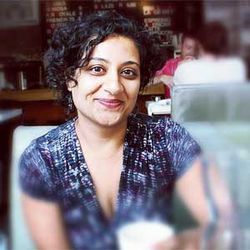
Born in Zambia to Muslim expatriate parents from India, she immigrated to Canada with her family in the early 1970s. She grew up in Whitby, Ontario Her debut novel, Stealing Nasreen, about a married couple both of whom become secretly interested in a lesbian psychologist, was nominated for a Masala! Mehndi! Masti! People's Choice Award. Her second novel, Six Metres of Pavement [Kindle], won a Lammy, a Rainbow Award, was named by Now magazine as a top ten book of 2011, was short-listed for the Toronto Book Award, and was longlisted in the top forty of Canada Reads 2014. In addition to her writing career, Doctor works as a psychotherapist, coordinates a regular reading series in Toronto's Brockton Village neighbourhood, and coproduced Rewriting The Script: A Loveletter to Our Families, a documentary film about the family relationships of LGBT people in Toronto's South Asian immigrant communities.
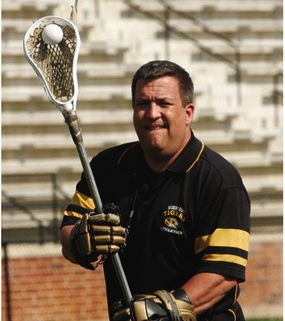
1970 – Kyle Hawkins is the former head coach of the German National Men's U-19 lacrosse team, and former head coach of the University of Missouri Men's Lacrosse team. In May 2006, he discussed his sexual orientation with several media outlets, including the New York Times and MSNBC.com after having revealed to the university and team that he was gay. In April 2007, the story again made media waves with an Associated Press story featured on MSNBC.com. Hawkins was named the first openly gay man coaching an intercollegiate men's team sport by ESPN.
Andrew grew up in the suburbs of Chicago as a self-professed "bible-banging homophobe,". In the summer after his freshman year in college his three best friends all came out to him. That prompted Andrew to move into the predominantly LGBT Boystown neighborhood in Chicago. After years of living in the neighborhood talking to his new neighbors and community, going to gay bars and public events with a goal of listening and learning, he clearly noticed that the LGBT/conservative disconnect was the single reason for so much unnecessary pain and trauma in a lot of people's lives. The Marin Foundation (TMF) was birthed out of this realization, and TMF works to fill the disconnect at the root of these problems.  (Click for larger) The Marin Foundation is most well known for their I'm Sorry Campaign, where their LGBT and straight members attend gay pride parades and hold up signs apologizing for how Christians have treated LGBT people. The now famous and viral photo, "Christians Hugging a Gay Man in his Underwear" has been shared over 20 million times between sites such as Facebook, Twitter, Reddit, BuzzFeed and Instagram. It was also recently named by BuzzFeed as the #1 Picture to Restore Faith in Humanity. Besides the I'm Sorry Campaign, The Marin Foundation holds their Living in the Tension gatherings twice a month in Chicago, as well as around the US. Among a variety of TMF media appearances on major conservative outlets such as the 700 Club, and LGBT outlets such as The Gay Agenda Show, the BBC World News recently featured The Marin Foundation's regular gatherings held at a popular gay bar in Boystown, in print and on a 30 minute World News special.
1997 – The New Zealand court of appeals ruled unanimously against giving same-sex couples the right to marry under the Marriage Act of 1955.
2005 – On this date the country of Latvia edited its constitution to ban equal marriage rights to Gays and Lesbians.
[{(o)}]|[{(o)}]|[{(o)}]|[{(o)}]| [{(o)}]|[{(o)}] Today's Gay Wisdom: The Wit of Noël Coward:
[{(o)}]|[{(o)}]|[{(o)}]|[{(o)}]| [{(o)}]|[{(o)}] |
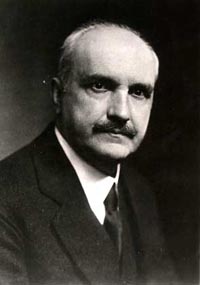
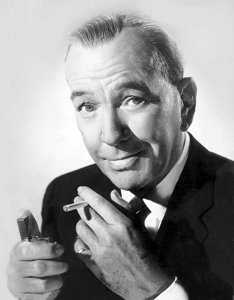
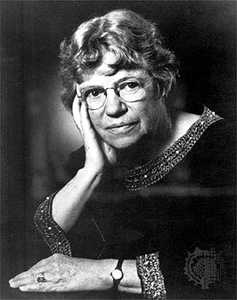
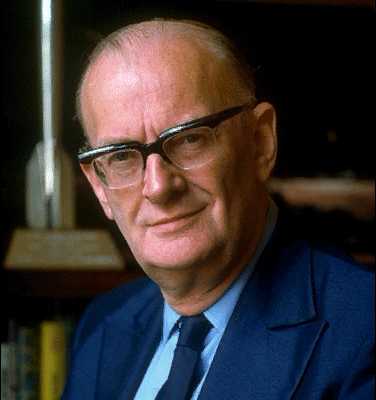
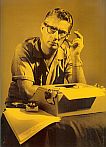
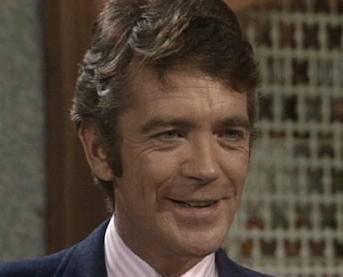
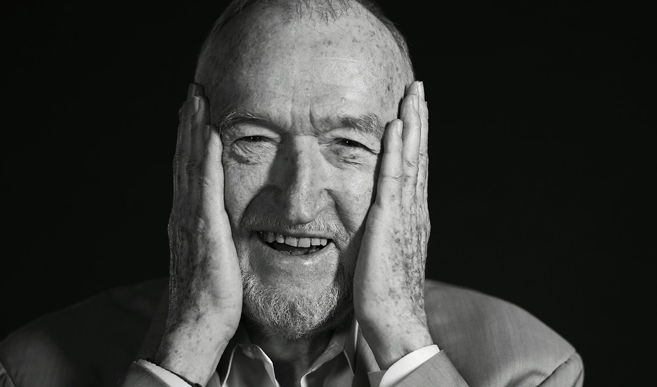
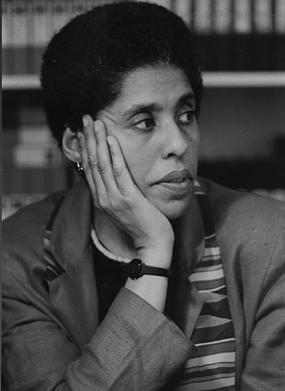
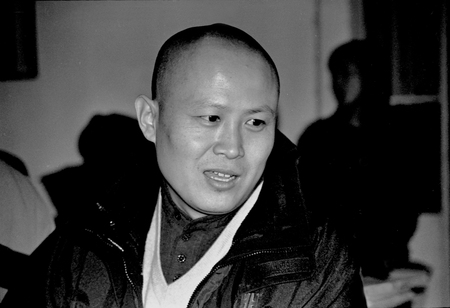
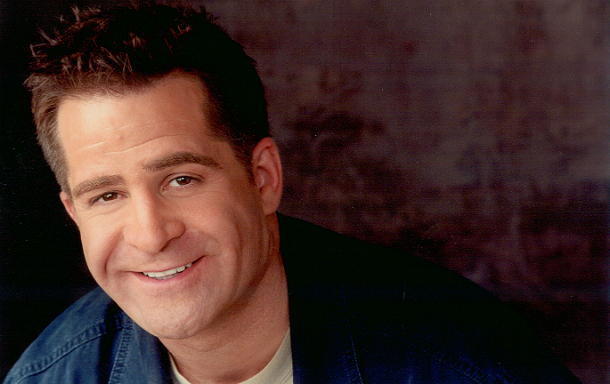

 Added 2023
Added 2023